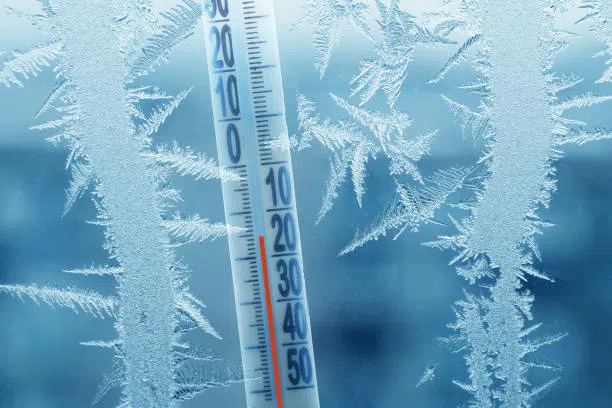
(Credit: IStock Photo)
It’s day two of this cold snap in the Kamloops region, and Interior Health is warning these frigid wind chills can cause severe health risks.
It comes as an extreme cold warning remains in effect in the South Thompson, Nicola and Similkameen regions and much of Western Canada – as a prolonged period of bitterly cold wind chills continues.
Interior Health Medical Health Officer Dr. Wenzhen (Jen) Zuo says with wind chill values of minus 38, like what was seen in the region on Friday morning, frost bite can happen within minutes, especially on bare skin.
“We are also worried about the risk of hypothermia if you are staying long enough in the cold and of course for the elderly, it could be icy outside, so a fall is something we are also concerned about.”
She in a bit to prevent getting frost bite, or hypothermia, Zuo says its crucial people are fully covered from head to toe if they’re going out in the cold.
“Any exposed skin should be covered. You should have a hat that covers your ears -because that sensitive area.- you should be wearing goggles to protect your eyes. Your nose and chin should all be covered by that face masks for example, or scarfs so your neck is covered. Wear mittens, a good parka, thermal underwear, wool socks, and a good pair of waterproof boots.”
As for the signs to look out for if someone may have hypothermia, Zuo says symptoms can range with mild to severe cases of hypothermia.
“In milder cases, you could see someone shivering if they are under dressed. In more severe cases, the shivering could have stopped and the person may have slower speech or movements, they may also appear confused. Its quite alarming,” she said.
“In the most severe cases, they could have loss of consciousness; if you see someone sitting down or lying down and you call their name and they can’t answer them, this is extremely concerning and you should you should absolutely dial 911 right away.”
It all comes as extreme cold has moved over Western Canada from the Arctic.
While that windchill is expected to moderate by the end of the weekend in Kamloops, Environment Canada Meteorologist Armel Castellan says the weather models haven’t been conclusive about what comes after that.
“Currently, the temperatures are locked in here for the next three or four days and then by Sunday, we start to lose the consistency or the convergence of models. We look at a lot of different models from a lot of different countries and ensemble outputs as well and they don’t all agree on how early next week will play out.”
Castellan says the cold snap is especially concerning after an abnormally warm December that saw many daily temperature records broken just weeks ago.
He says bitter cold creates additional risks for injuries such as frostbite and hypothermia, and people should be especially cautious when going outside.
(With files from The Canadian Press)















